Landmark deal reached in 2020 with European Union being expanded
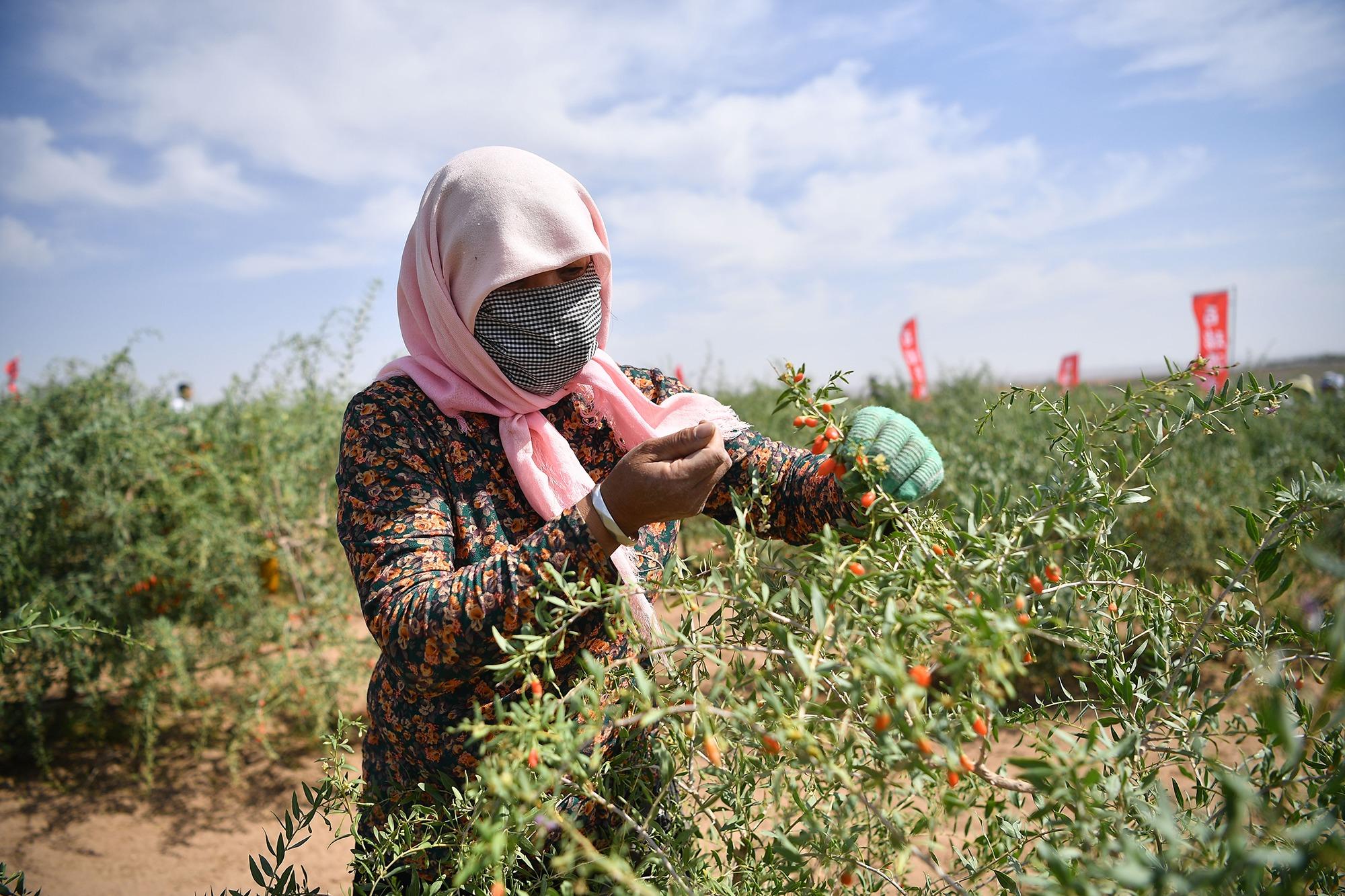 A farmer picks goji berries at the Bairuiyuan planting base in Wuzhong, Ningxia Hui autonomous region, in June, 2023. (PHOTO / XINHUA)
A farmer picks goji berries at the Bairuiyuan planting base in Wuzhong, Ningxia Hui autonomous region, in June, 2023. (PHOTO / XINHUA)
Many consumers choosing crab from Yangcheng Lake in Jiangsu province in preference to common crab, or Roquefort instead of other types of blue cheese, consider the geographical sources of such produce when making their purchases.
Pu'er tea from Yunnan province, Wuchang rice from Heilongjiang province, Cognac from France and feta cheese from Greece are other examples of well-known names in China and Europe associated with products of a certain nature and quality because of their place of origin. They are known as GI, or Geographical Indication, products.
GI protection bears great significance in terms of guaranteeing the characteristics of China’s specialty products
Hu Wenhui, deputy head of the China National Intellectual Property Administration
Geographical Indications help meet consumers' growing demand for information about the products they purchase by identifying those that originate from a specific area, and which have characteristics essentially attributable to their source of origin.
He Yuxiang, head of an agency that promotes Iberian ham in China, said: "Put simply, I think GI products can be understood as local rural specialties whose quality is guaranteed. For example, Iberian ham is one such specialty from a designated area in Spain where the pigs are fed and the hams are processed."
In China, the protection of GI as a type of intellectual property can be traced to 1985, when the nation joined the Paris Convention for the Protection of Industrial Property.
Four years later, the State Administration for Industry and Commerce issued an administrative decree to protect Champagne from being misused as a generic term for a type of sparkling wine on Chinese markets. This was a milestone event in China regarding administrative protection related to GI.
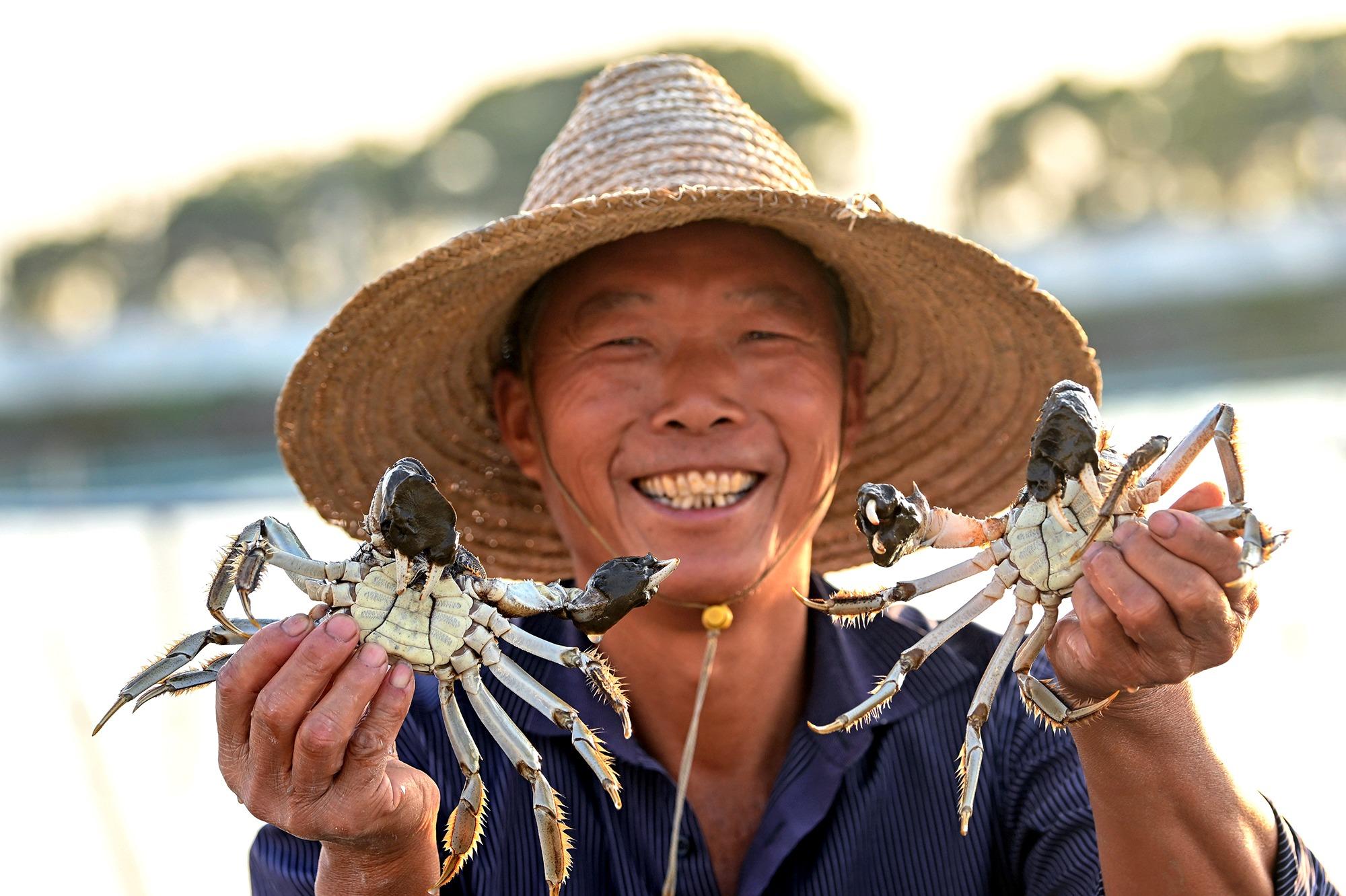 A crab farmer displays Yangcheng Lake crabs in Kunshan, Jiangsu province, in October 2022. (WANG XUZHONG / FOR CHINA DAILY)
A crab farmer displays Yangcheng Lake crabs in Kunshan, Jiangsu province, in October 2022. (WANG XUZHONG / FOR CHINA DAILY)
Supervision of GI in China used to be the responsibility of a number of ministries, but after several rounds of institutional reforms by the State Council, the China National Intellectual Property Administration is now the main department responsible for such protection.
Hu Wenhui, deputy head of the administration, said, "GI protection bears great significance in terms of guaranteeing the characteristics of China's specialty products, improving their market competitiveness, and promoting global trade."
To accelerate the introduction of unified legislation, the administration also drew up a series of regulations to provide more detailed rules for the registration, use and protection of GI products. These regulations are due to take effect on Feb 1.
Data from the administration show that by the end of June, China had certified 2,498 GI products, 80 percent of which are agricultural and forestry items or food. In addition, more than 25,000 business entities have been authorized to use special GI symbols. Last year, the direct output value of China's GI products surpassed 800 billion yuan (about $112 billion).
John Clarke, former director-general of international relations at the European Union Directorate-General for Agriculture and Rural Development, said China's work to reform its GI system was one of the main reasons the EU and China were able to sign a landmark agreement on GI protection in 2020.
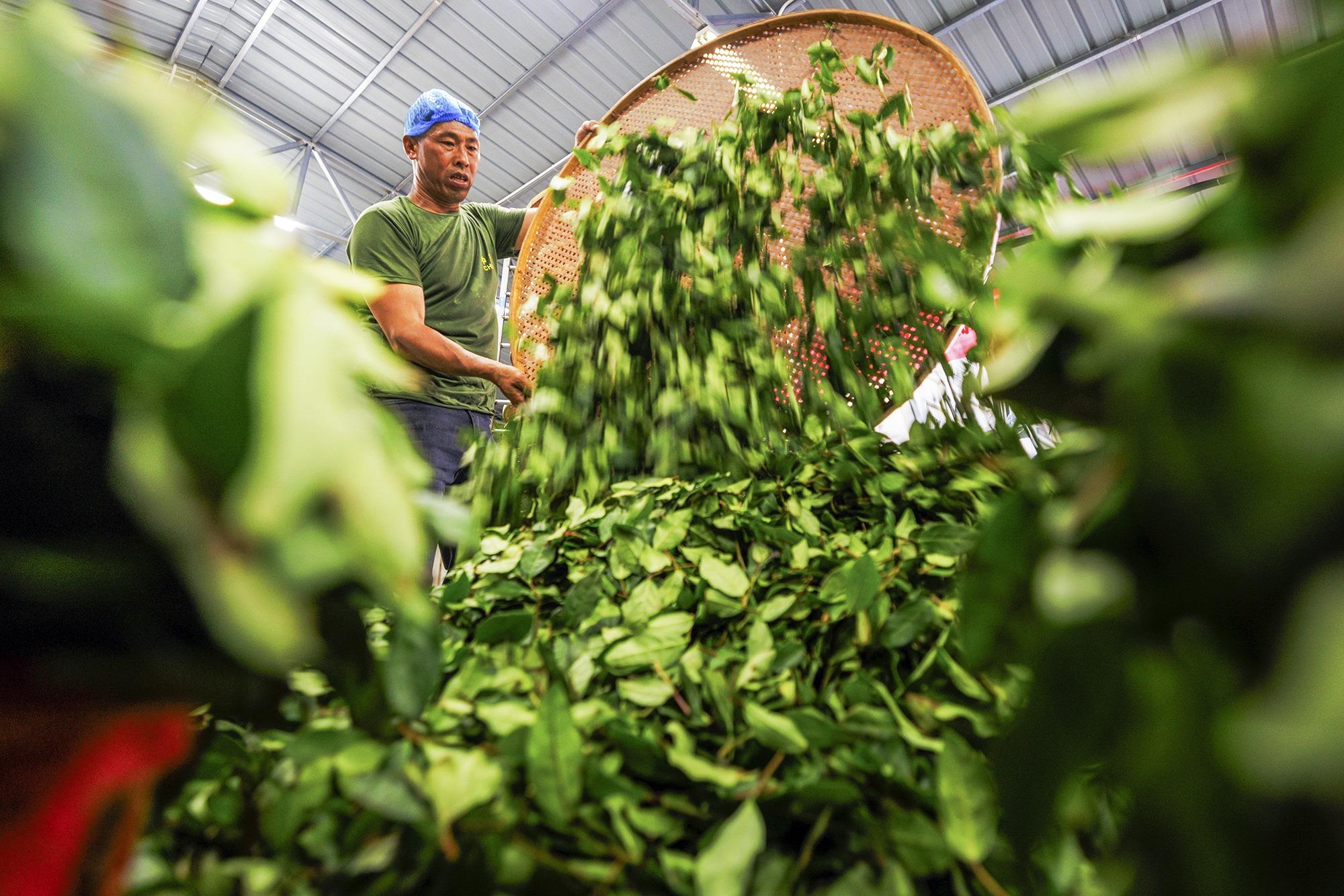 A farmer produces Tieguanyin tea in Quanzhou, Fujian province, in October, 2023. (PROVIDED TO CHINA DAILY)
A farmer produces Tieguanyin tea in Quanzhou, Fujian province, in October, 2023. (PROVIDED TO CHINA DAILY)
The deal, which took effect on March 1, 2021, was the first comprehensive and high-standard bilateral agreement on GI negotiated between China and foreign countries.
China and the EU were each other's second-largest trading partner in 2022. Statistics from China Customs show that the bilateral agri-food trade between the two sides that year amounted to $30.56 billion.
The reciprocal deal aims to provide high-level GI protection from both sides, effectively prevent the counterfeiting of GI products, and ensure that consumers enjoy genuine and high-quality goods.
Clarke, chief EU negotiator for the agreement, said many well-known European and Chinese names are stolen by imitators. "On the European market, you will see several producers of what is said to be Longjing tea hailing from New Zealand or Chinese Taipei," he said.
Similarly, on the Chinese market, there are amounts of fake Bordeaux, Cognac, feta and other types of cheese, he said, adding, "This agreement helps stop that."
As part of the agreement, some 200 iconic Chinese and European agri-food names, including Anxi Tieguanyin tea, Shaoxing wine, Prosciutto di Parma and Champagne, are protected against usurpation (the unlawful assumption of the use of property that belongs to someone else) and imitation in each other's market.
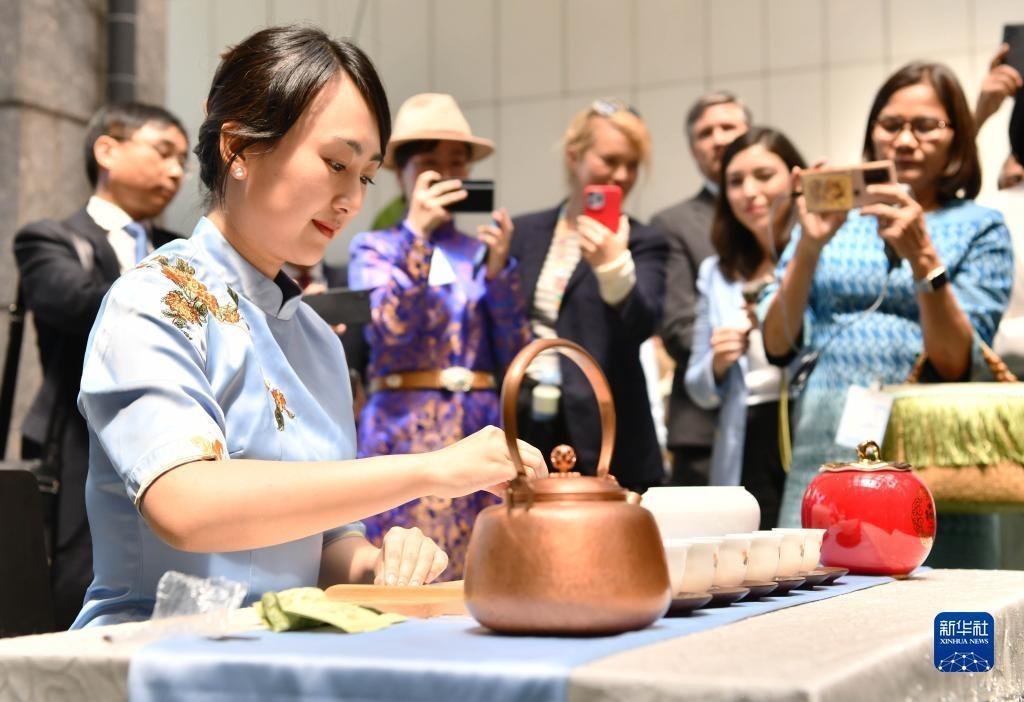 A cultural representative from Anxi, Fujian, performs a tea ceremony at the United Nations Food and Agricultural Organization headquarters in Rome in May, 2023. (PHOTO / XINHUA)
A cultural representative from Anxi, Fujian, performs a tea ceremony at the United Nations Food and Agricultural Organization headquarters in Rome in May, 2023. (PHOTO / XINHUA)
The agreement will be expanded to cover an additional 350 GI products from both sides — including Xuan paper from Anhui province — within four years of it taking effect. This is the first time the EU has included non-agricultural GI in the deal.
Joan Valadou, French consul general in Shanghai, said the role played by GI has been recognized in France. "It can ensure high-quality products, enhance consumers' trust, and help producers and small and medium-sized enterprises gain a stable income," he added.
Signing the agreement means that people in China can now buy online and in physical stores various GI products from France and other European countries, Valadou said.
Wang Yi, secretary-general of the Ningxia Goji Association, said, "Mutual GI recognition and protection between China and the EU has opened opportunities for China's premium products to enter the European market and be sold at higher prices."
Chinese products may enjoy easier access to markets in third countries, because those listed in the agreement will be allowed to use official European symbols that identify a product's place of origin, he added.
The association is responsible for promoting the development of the goji berry industry in the Ningxia Hui autonomous region.
Noting that some Chinese GI products such as goji berries from Ningxia are produced in economically less-developed areas, Wang said the agreement will provide strong support in promoting rural revitalization and achieving sustainable economic development in these regions.
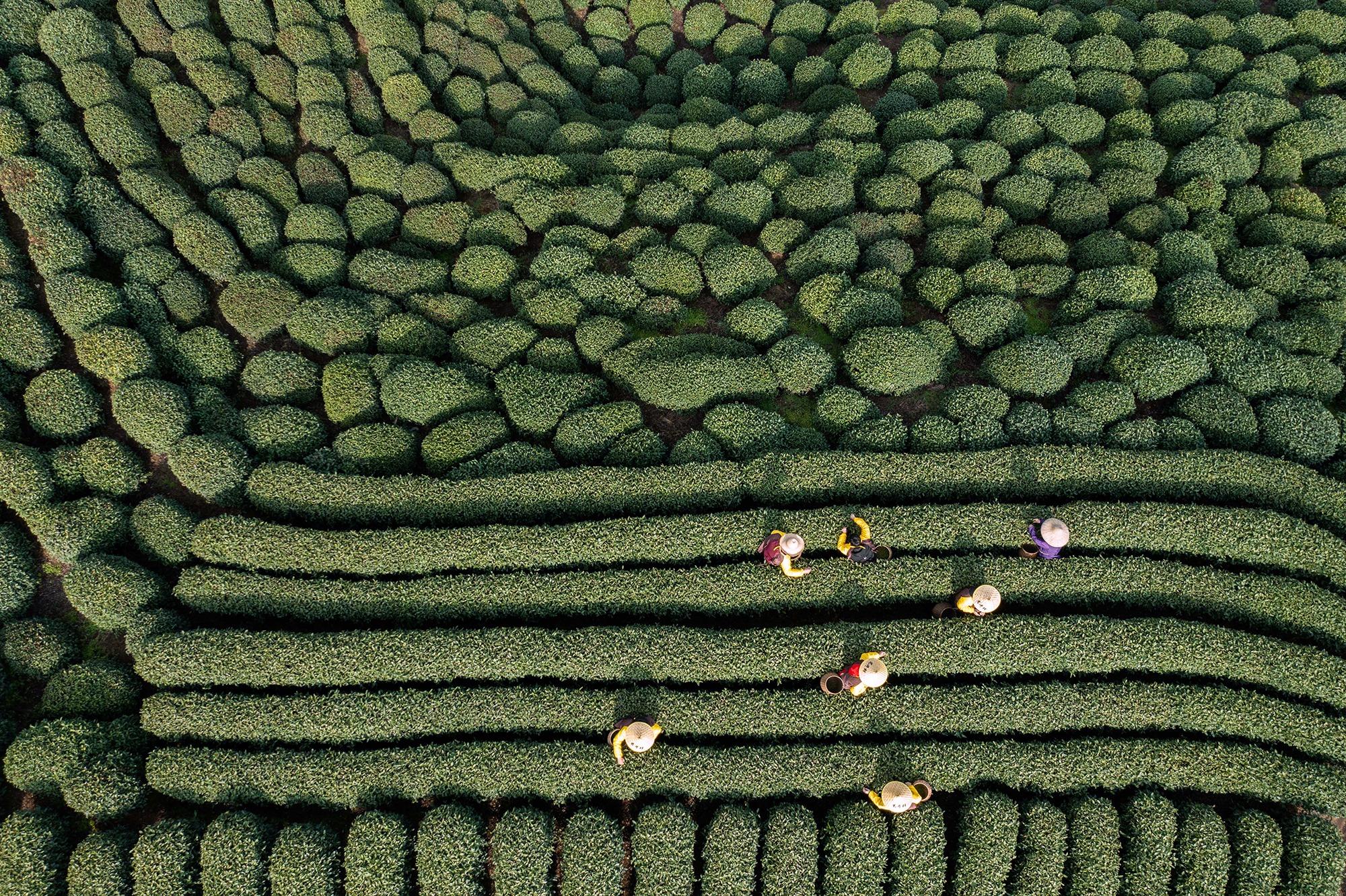 This aerial photo taken on March 13, 2023 shows tea-picking workers harvesting Longjing tea leaves at a tea garden in Longjing Village of Hangzhou, east China's Zhejiang Province. (PHOTO / XINHUA)
This aerial photo taken on March 13, 2023 shows tea-picking workers harvesting Longjing tea leaves at a tea garden in Longjing Village of Hangzhou, east China's Zhejiang Province. (PHOTO / XINHUA)
Hu, from the China National Intellectual Property Administration, said that since the agreement was implemented, the first batch of Chinese GI products — Xinghua chives, Fenghuang Single Cluster (a kind of oolong tea) and Shaoxing rice wine, have entered the European market. Meanwhile, Chinese consumers have shown a positive and open attitude toward high-quality European GI products such as wine, milk and meat.
The administration has also introduced a series of measures to aggressively crack down on GI counterfeiting and infringement violations involving Bordeaux wine from France and Munchner Bier from Germany, as listed in the agreement, Hu said.
Martha Mavrommatis, the Cyprus ambassador to China, said frequent GI exchanges between China and the EU over the years have increased mutual understanding and helped the two sides maintain sound interactions.
"Cyprus is looking forward to the list being expanded in the near future. Apart from the economic aspects, the agreement plays a crucial role in cultivating cooperation and synergies in various other fields," she said.
Shi Shiwei, a senior research fellow at the University of International Business and Economics' Research Center for China-EU Economic Cooperation, said the agreement reflects the openness and adherence of both sides to rules-based trade relations.
"Despite distractions for political purposes, it is also a concrete example of China-EU cooperation," he said.
Shi added that China and the EU have developed a mutually beneficial trade relationship through long-term cooperation, and the two sides enjoy huge potential in areas such as the automobile industry.
"It is important that the European business community can withstand political interference and enable China-EU economic and trade cooperation to play a stabilizing role in developing bilateral ties," he said.


